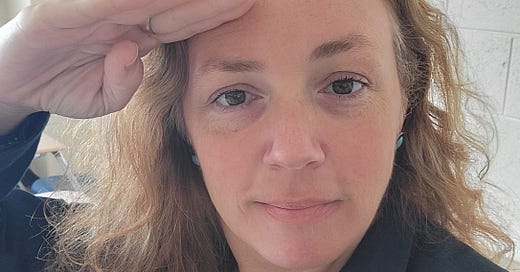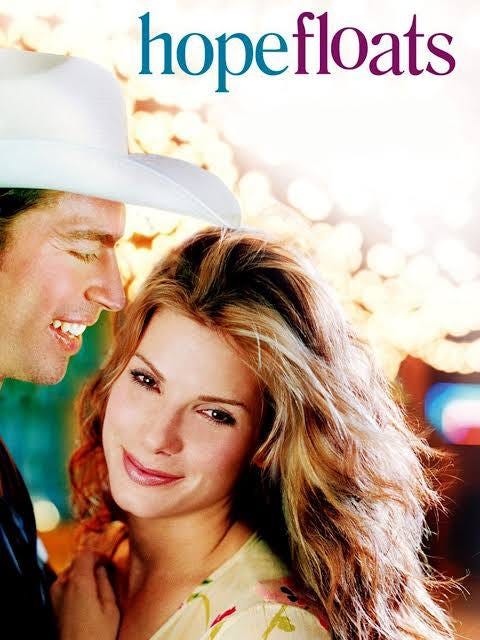Dear Sweetest Heart inside your heart,
I come from a line of women who never let you feel bad for yourself.
I love those women. We do not always get each other, and putting us all in the room is the epitome of too many cooks in the kitchen, which is why my grandmother does the cooking. She doesn’t like to do it, but she does it, and whatever she puts in front of you will taste good. The hands of many of our women are callused and tough, but the heart and soul is underneath and the warm fire comes through.
It is because of these women that I was drawn to women poets, and studied women’s literature, and always took on a special concern for women’s rights and issues. I watched strong women who were smart and humble step up for themselves and make do, and I admired them. I grew up in a women’s world. And I loved that women were running my world, even when I acted all adolescent and complained about everything.
Even with women running our world, sometimes what we need is to go deep inside ourselves and find our own special spark and magic. No other person in this world can give that to you. It is your journey, what you are meant to do alone. And so, what you can do for another who is traveling on this path of the dark night of the soul, of aloneness, of finding the richness of the earth placed inside of them, is to listen without judgement. Give that person space. Trust in the process.
There is talk in some religious circles about the woman creature Jezebel, and what Jezebel means. I read her passage in the bible to better understand, years ago. (It is in Kings.) When I first read it, I didn’t understand what was so wrong about Jezebel. She loved her husband and she was helping him, right? But over time, I began to see the problem in her approach. It was to meddle, to interfere, to take charge, to be God rather than let someone figure things out for himself. Jezebel was smart and savvy, and she also loved, and wanted to protect. So she took control and used her intelligence to get rid of the people who were “problems” in her husband’s life. But she didn’t get rid of the problems, because she denied her husband agency and his own connection to the divine, and his own ability to communicate and stand up for himself. She didn’t give him space to grow. She stifled him, and she shrouded him, and she emasculated him, and she called it love and productivity.
So many people are angry right now. There is noise coming at us from all directions. The power we often deny is our own power to act, to speak, or to stay silent. We can choose to engage in the noise and toxicity, or we can choose to step back and find a way to use our fire for a purpose that truly connects to the heart, and creates real transformation.
When we step back and take a break, get clear, acknowledge all our faults and worries and concerns and frailties, we often find gratitude for the moment. And inside that sliver of gratitude contains another sliver and another sliver, and soon we are thanking the sky for being blue, and the trees for turning colors and providing shade, and that one bird who is so soft, perching in front of us for a few breaths.
Thank you, thank you, thank you, becomes our modus operandi, even as the world seems like it is on fire.
This week I re-watched Hope Floats, a 1998 movie directed by Forest Whitaker, and written by Steven Rogers. It stars Sandra Bullock as the heroine, Harry Connick, Jr. as the Texan stud, and Gena Rowlands as the kooky, sweet, matchmaking mom. I think of this movie all the time. The lines in this movie stand out to me so frequently. It is so beautiful, which is why I can’t say more about it here. It is streaming on Hulu and available for rental elsewhere.
I also reviewed Adrienne Shelly’s Waitress (2007) in October’s issue of The Shuttle, through my local co-op Weaver’s Way. October is Domestic Violence Awareness month, but we know domestic violence isn’t limited to October. Check out the film and read the column here (pg 5), if you’re so inclined. It is another one of my favorites. Pie can save us. Seriously.
And last, I have been thinking about music videos that tell a story, and how impressive that story can be sometimes. Taylor Swift, as an example, has some wonderful visions to help bring her songs to life. In 1989, Madonna presented her video for “Like a Prayer,” and I remember sitting on the floor of my living room watching people on some news site give their opinions on whether Madonna was a demon because there were crosses burning in her video. I had no idea what burning crosses meant. We were not religious in my house. Nowadays, what I think is more important to focus on is that Madonna presents a Jesus or saint figure as black. That is the concept, ay? Who is she really criticizing—Christ or the backwards KKK white supremacist culture that thinks money, meanness, and secrecy is the key to “greatness”?
Hmm?
Cause Jesus was definitely not white with blue eyes, when he was born to Jews in that Middle Eastern desert.
“Life is a mystery…everyone must stand alone.”
Did you know Madonna adopted a bunch of kids? I think I’d feel pretty safe with her as my mom. She would step up for people in vulnerable situations, and donate the profits she made from her art to help people and children in need. It is so obvious about her character.
Anyway, what do you think of this video, sweethearts? When I was a kid, I just saw a pretty woman dancing and this beautiful black man who was persecuted even though he was a good person, and a happy choir of people giving the white girl their blessing.
Thank you for showing up for these weekly blogs, again and again. It means a lot to me.
Ms. Wonderful
P.S. Season Two of the Ms. Wonderful Film Club Podcast is me reading posts from the archives, starting with this first post last year about Footloose.
Dancing is democratic, don’t you think?
Subscribe to the Ms. W Film Club Podcast for spiritual fruits in moviemaking. Please.
On Spotify
On Apple
Questions, comments, praise, adoration? Give it to your momma.







Wonderful piece.